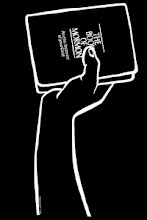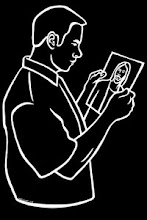Dallin H. Oaks, “Miracles,” Ensign, Jun 2001, 6
The word miracle is used in different ways. We sometimes say that any happening we cannot explain is a “miracle.” To me, a computer is a miracle. So are cell phones and space travel. But these wonders are explainable by physical laws understood by some mortals. I call them miracles because I do not personally understand them and therefore cannot duplicate them at will.
Another category of miracles, so-called, are the tricks that some magicians and religious practitioners stage in order to produce astonishing events in aid of their professions or ministries. You will remember that the magicians in Pharaoh’s court duplicated some of the miracles Moses produced through the power of God (see Ex. 7–8). Perhaps these magicians were servants of the devil, using his power, but I think it more likely that they were simply skilled practitioners of magic tricks that they used to reinforce their position in Pharaoh’s court.
Religious practitioners have employed similar deceptions in our own day. About 40 years ago a professional dramatic production planned for a midwestern city had to be postponed because the producers could not find enough professional actors to perform the required roles. A great religious revival was under way in that city, and I was told the revivalists had hired all of the available professional actors to portray miraculous healings and conversions to enhance their position and goals with their audiences. Before we are too critical of such techniques, we should remember that we engage in similar deceptions whenever we exaggerate a happening in order to dazzle an audience into thinking we have experienced a miracle or to enhance our stature in other ways. Warning!
We know from the scriptures that persons without authority will use the name of Jesus Christ to work what seem to be miracles. The Savior taught that as part of the Final Judgment many would say, “Lord, Lord, have we not prophesied in thy name? and in thy name have cast out devils? and in thy name done many wonderful works?” (Matt. 7:22). You will remember that these pretenders were rejected by the Lord (see Matt. 7:23).
Not every manifestation or miracle comes from God or from mortal deception. The adversary has great powers to deceive, and he will use these to give his corrupted copy of the genuine miracles worked by the power of God. I will say no more of this, since I believe it is not desirable to say much about the powers of the evil one. It is sufficient for us to know that his power exists and that we have been warned against it (see Rev. 13:11–14; D&C 28:11; D&C 50:1–3). 4
I will now describe two types of genuine miracles. These two fit all of the elements of the definition: they are brought about by divine power, mortals do not understand them, and mortals cannot duplicate them of themselves.
First, miracles worked by the power of the priesthood are always present in the true Church of Jesus Christ. 5 The Book of Mormon teaches that “God has provided a means that man, through faith, might work mighty miracles” (Mosiah 8:18). The “means” provided is priesthood power (see James 5:14–15; D&C 42:43–48), and that power works miracles through faith (see Ether 12:12; Moro. 7:37). The scriptures contain many accounts of such miracles. Elijah’s raising the widow’s son and Peter’s healing of the lame man are two familiar examples from the Bible (see 1 Kgs. 17:8–24; Acts 3), and there are many others. I will describe some modern examples later.
A second type of genuine miracle is the miracle worked through the power of faith, without specifically invoking the power of the priesthood. Many of these miracles occur in our Church, such as by the prayers of faithful women, and many occur outside it. As Nephi taught, God “manifesteth himself unto all those who believe in him, by the power of the Holy Ghost; yea, unto every nation, kindred, tongue, and people, working mighty miracles, signs, and wonders, among the children of men according to their faith” (2 Ne. 26:13; see also 1 Ne. 7:12; James 5:15).













No comments:
Post a Comment